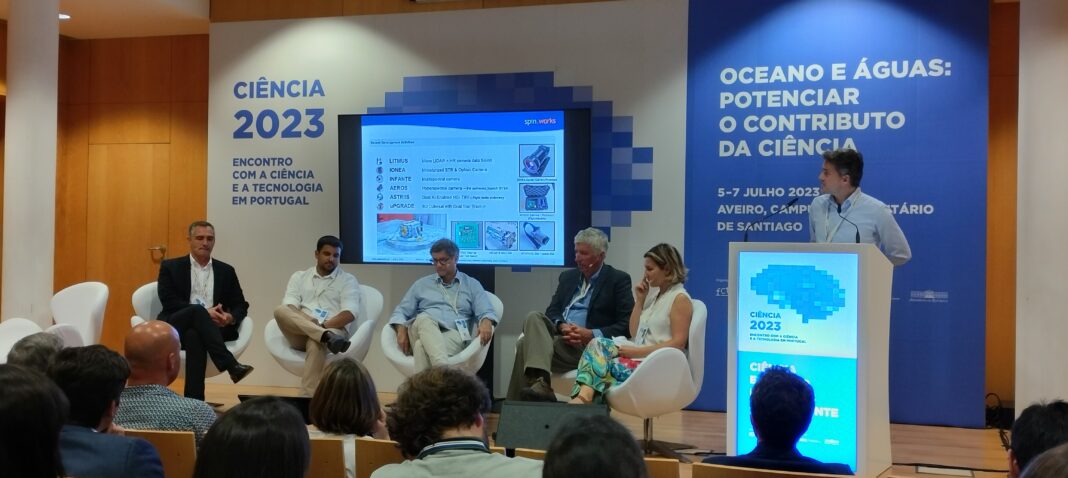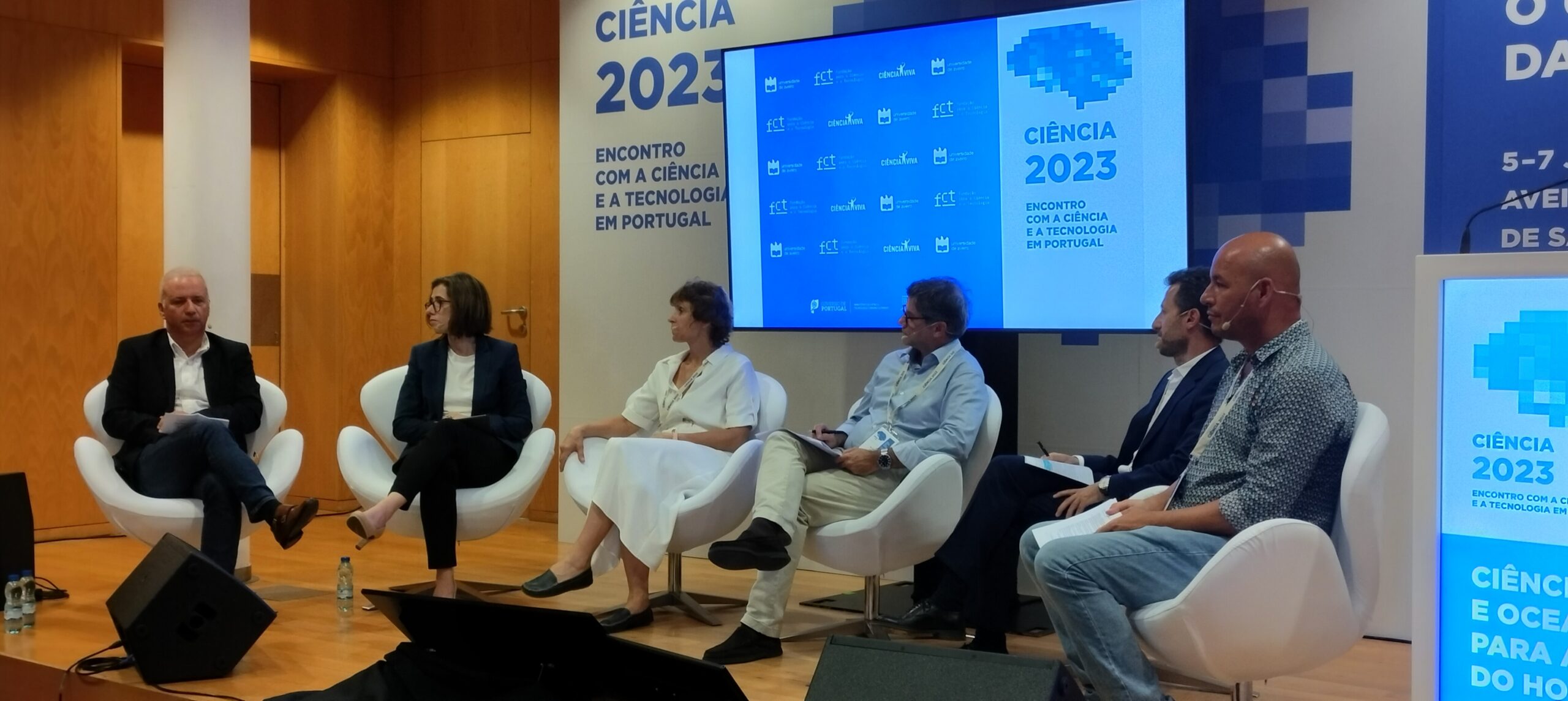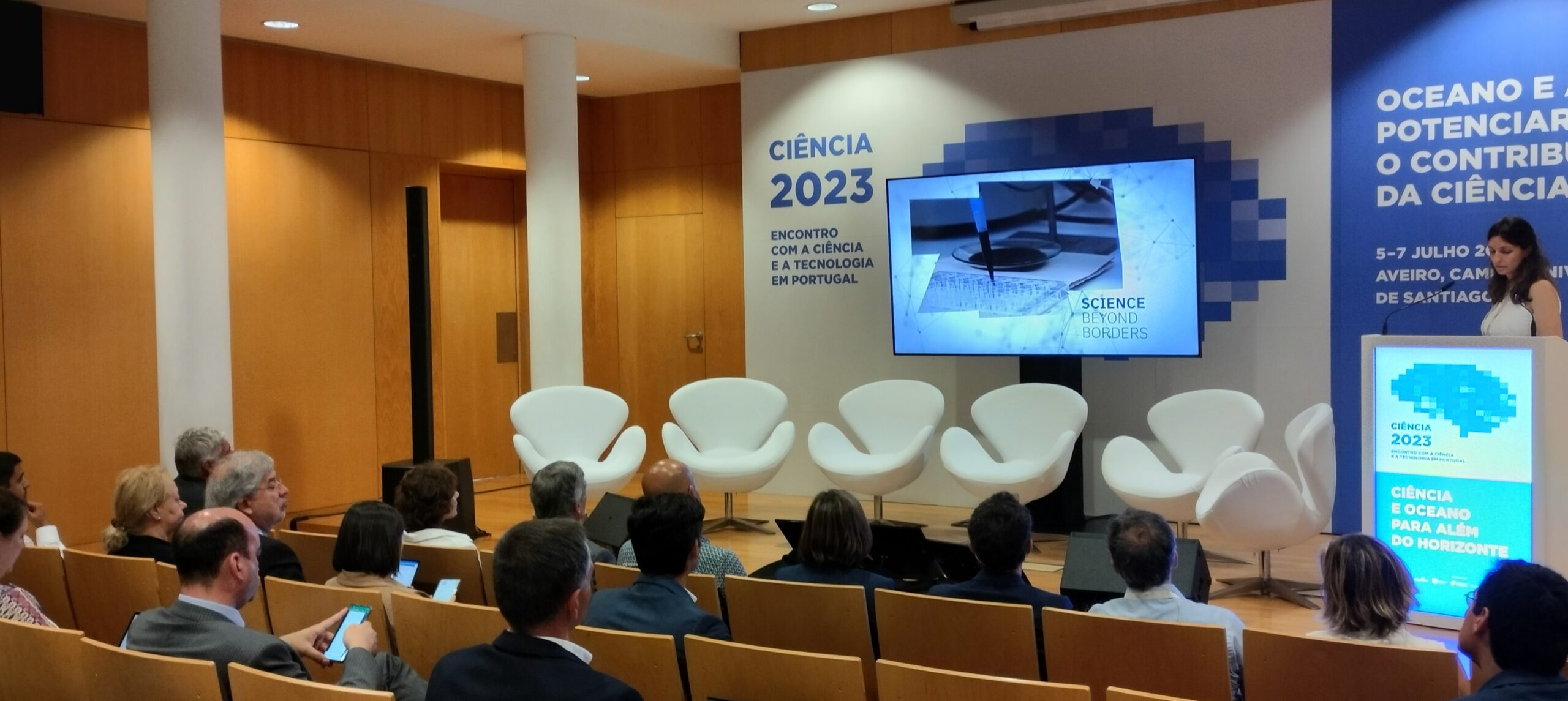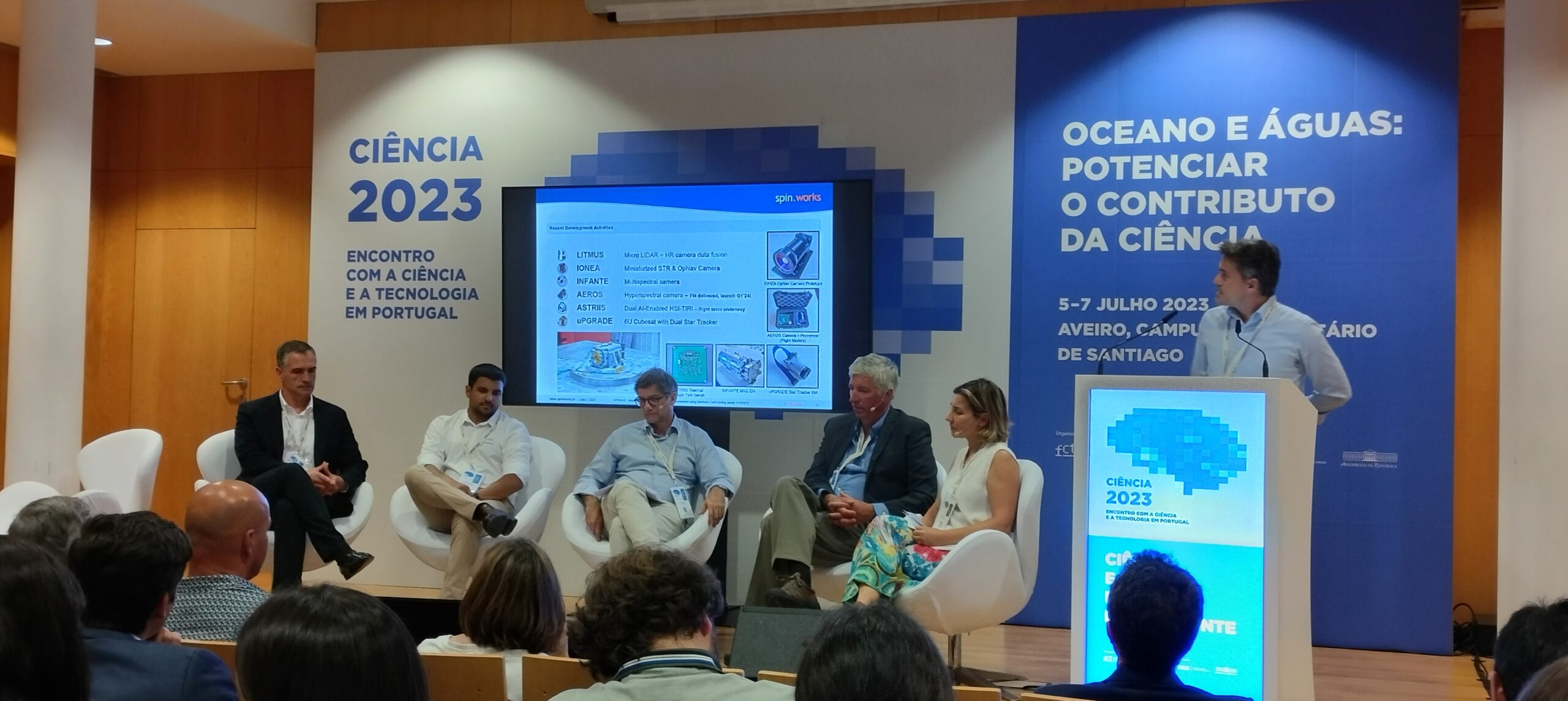Between the 5th and 7th of July, at the University of Aveiro, the Portuguese Foundation for Science and Technology and the National Agency for Scientific and Technological Culture (Ciência Viva) organized another Encontro Ciência. This is Portugal’s biggest annual Science and Technology event, bringing together the scientific community to promote the exchange of ideas and discussion about the Portuguese scientific landscape.
Inspired by this year’s theme, “Science and Ocean Beyond the Horizon”, FCT’s International Partnerships – CMU Portugal, MIT Portugal and UT Austin Portugal – organized a joint session on the 5th of July, where they got to reflect on their unique role in building bridges (i.e., individual and institutional-based relationships) over the Atlantic Ocean for almost sixteen years.
The session, titled “FCT International Partnerships: Building bridges across the Atlantic”, brought together Directors of the three Programs – Nuno Nunes (Co-Director of the Carnegie Mellon Portugal Program), Inês lynce (Co-Director of the Carnegie Mellon Portugal Program), Pedro Arezes (National Director of MIT Portugal Program), Doug Hart (co-Director of the MIT Portugal Program at MIT), José Manuel Mendonça (National Director of the UT Austin Portugal Program), and Rui Oliveira (Co-Director of the UT Austin Portugal Program) – with beneficiaries of mobility initiatives and research project coordinators to discuss the impact of these S&T programs on the Portuguese scientific and entrepreneurial ecosystem.
From UT Austin Portugal’s side, Jorge Sá Silva (participant in the Short-term Research Internships at UT Austin 2022) shared the stage with Petia Georgieva (CMU Portugal) and Eunice Costa (MIT Portugal) to give his testimonial about his experience last year with the Program. Jorge, an Associate Professor and Researcher at the University of Coimbra was one of the ten researchers selected for a short-term internship at UT Austin. He was hosted for almost three months by Professor Radu Marculescu to explore new joint models for the Internet of Things combined with humans in the Loop systems. Like Petia and Eunice, Jorge underscored the added value of his experience at a top U.S. university. He explained he was looking to learn more about Professor Marculescu’s research group as they worked on topics converging towards his research. He wanted to get to know other testbeds, platforms and new approaches, also in teaching. Therefore, his visit to UT Austin ticked all the boxes – his relationship with his supervisor and his group still lingers. Whether you are going for a short-term research exchange or to do your PhD, Jorge, Petia, and Eunice agree that these educational initiatives with an international mobility component can be life-changing or create plenty of opportunities over time.
Research has been a core component of FCT’s International Partnerships in Phase III. In addition to exploratory research projects, the three Programs launched a joint Call in 2019 to finance industry-led research consortia, leveraging almost €60,8M public funding and over €9,7M industry sponsorship. Therefore, the last part of the session was devoted to discussing the collaborative framework under which Portuguese companies and research institutions teamed up with the three U.S. universities in Phase 3.
Three of these projects – SAFEFOREST (CMU), K2D (MIT Portugal) and uPGRADE (UT Austin Portugal) – were invited to present and discuss with the panel their three-year journey with the Programs, their main outcomes, potential impact and the consortium’s strategy for taking the results further and into the market. Tiago Hormigo, co-founder of Spin.Works. SA, the company that led uPGRADE, a Space-Earth Interactions project, explained, almost three years after being at the 2020 Encontro Ciência to talk about the project’s kick-off, uPGRADE’s overall performance, main results, and its potential contribution to the Portuguese space ecosystem in Portugal.
It became clear from all testimonials presented at the session that FCT’s International Partnerships have paved the way for long-running scientific collaboration, with significant returns for Portugal on education, research and entrepreneurship. “With the effort and commitment of the Portuguese and American teams, the results of these opportunities contribute to scientific advancement in strategic areas to the country, such as the Oceans, the main theme of Encontro Ciência”, says Andreia Passos, UT Austin Portugal Program’s Executive Director in Portugal. “However, just as science needs time, grasping the real impact of these initiatives may require years, if not decades. Nevertheless, once you get to see their impact, you cannot underestimate the magnitude of these Partnerships’ contribution to Portugal’s standing in the international science and innovation landscape”, adds Andreia.
Encontro Ciência is an annual event promoting Portuguese research and development efforts, in which the UT Austin Portugal Program has regularly participated. Last year, the Program promoted a session on its footprint toward Energy Transition and a zero-carbon economy, available to watch here.
About the International Partnerships
In 2006, the Portuguese Foundation for Science and Technology (FCT) created three international partnerships with three North American universities to strengthen the Portuguese scientific landscape: Carnegie Mellon Portugal (CMU), Massachusetts Institute of Technology (MIT) and the University of Texas at Austin (UT Austin). These connections made across the Atlantic strengthened collaborations in both countries and created opportunities for Portuguese researchers in strategic areas, such as technology, advanced computing, nanomaterials, and space science, among others.
Check out the overview video about the FCT International Partnerships, which was showcased at Encontro Ciência 2023.




